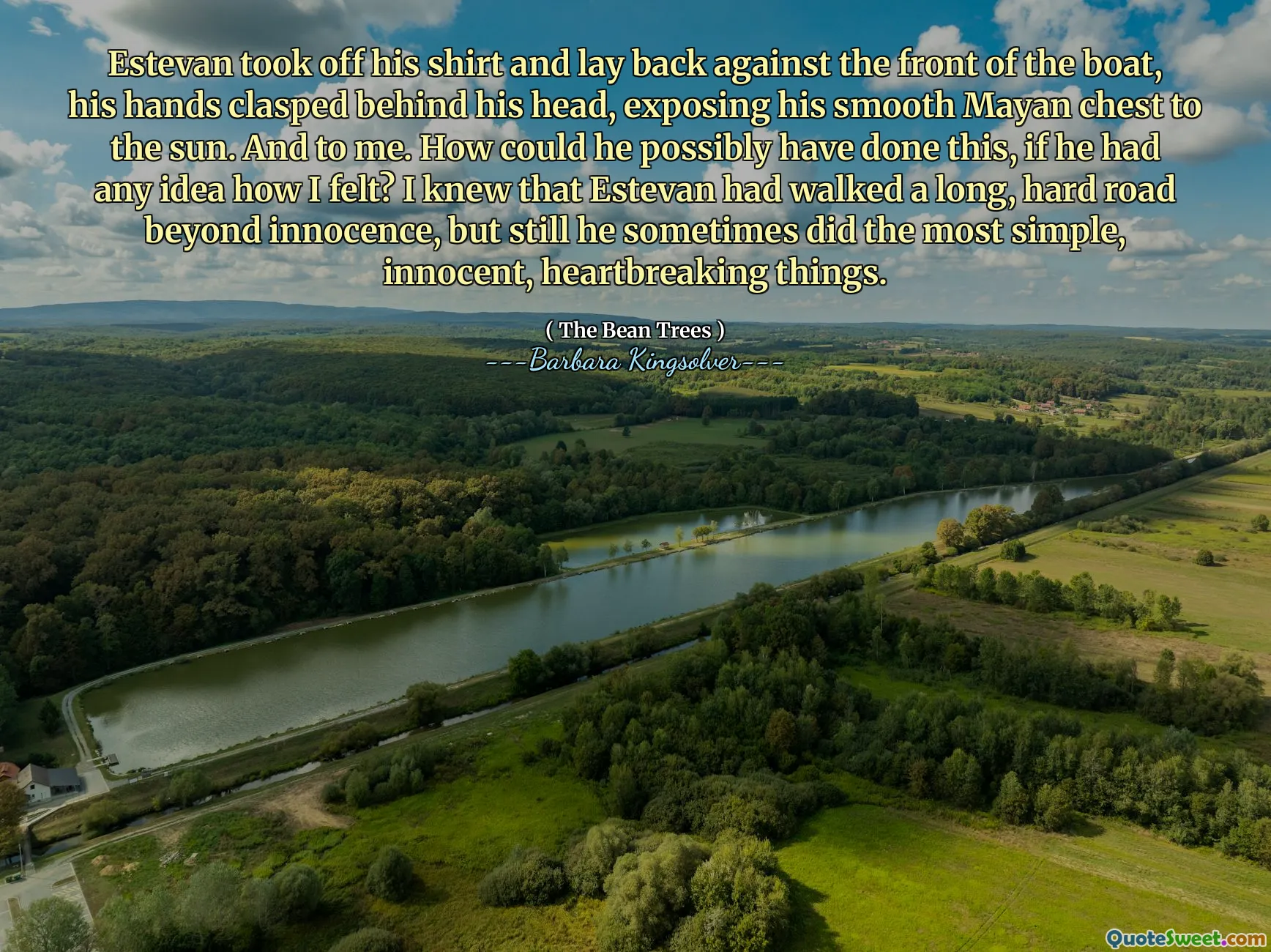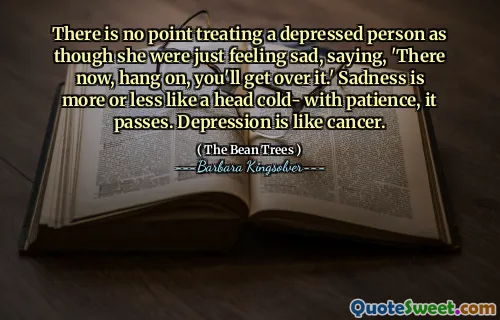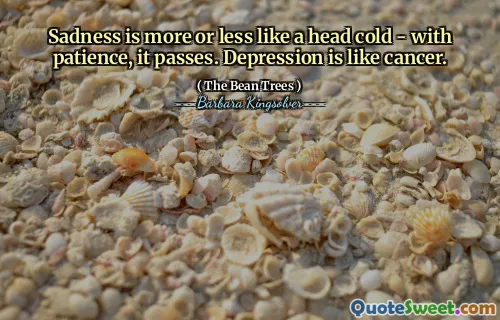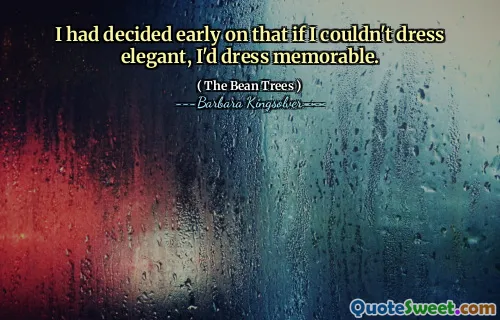
Estevan took off his shirt and lay back against the front of the boat, his hands clasped behind his head, exposing his smooth Mayan chest to the sun. And to me. How could he possibly have done this, if he had any idea how I felt? I knew that Estevan had walked a long, hard road beyond innocence, but still he sometimes did the most simple, innocent, heartbreaking things.
In "The Bean Trees," Estevan's actions reveal a blend of innocence and experience. When he removes his shirt and relaxes on the boat, his trust and comfort in that moment are striking, yet they clash with the narrator's deeper emotions. Estevan's Mayan heritage is emphasized through his physicality, showcasing a vulnerability that contrasts with the complexity of his past. It's poignant that he can indulge in such carefree behavior despite his tumultuous experiences.
The narrator grapples with her feelings, sensing a profound connection to Estevan while recognizing the weight of his history. His simple act of lying back evokes a sense of heartbreak, highlighting the juxtaposition between innocence and the hardships he has faced. Estevan's ability to engage in these everyday moments serves as a reminder of the layers within individuals, prompting the narrator to reflect on her own emotions and understanding of him.











